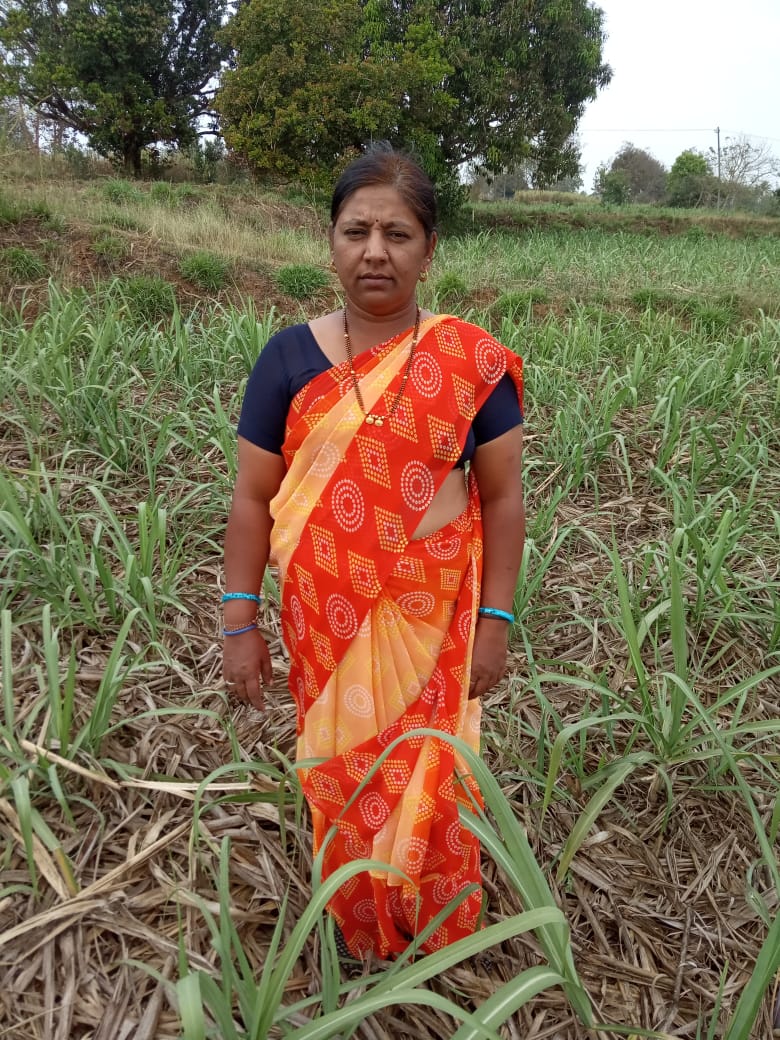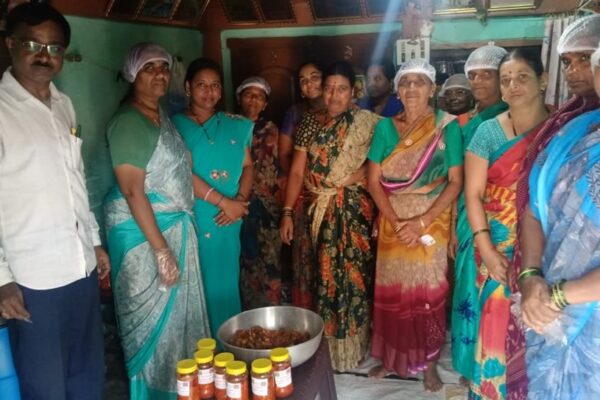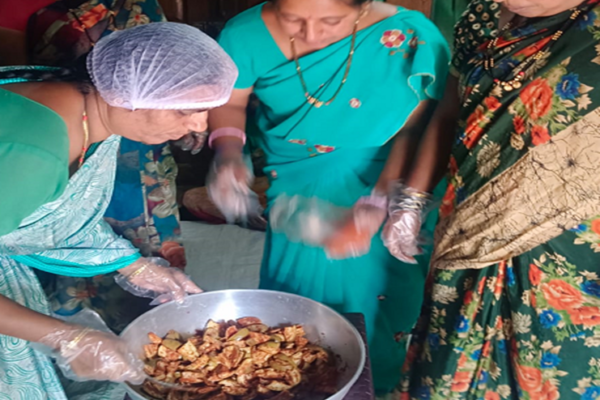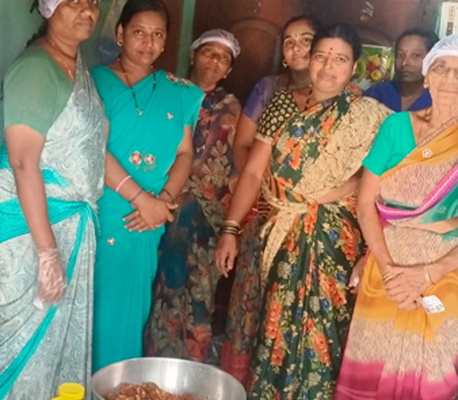In 2022, the Gender Leadership School (GLS) marked the culmination of its flagship program in India with a grand graduation ceremony attended by numerous organizations in Bangalore India. Among the proud participants stood Ms. Rani Marganakoppa from in Primary Agriculture Credit Co-operative Sangha Niyamit – Itagi, who stands with pride as she received her certificate that marked the successful completion of a series of transformative trainings.
But the journey didn’t end there. Inspired by the program to make a tangible difference, Ms. Rani and her peers were tasked in submitting a project proposal that aimed at fostering income livelihood initiatives based on community-based approach. Driven by a vision to empower women and youth, Ms. Rani Marganakoppa and her colleague, Mr. Maharudrayya Hiremath, is leading the self-help women group of the organization that centered around pickle production. Recognizing the abundance availability of fruits, vegetables with the accepted popular taste of certain varieties, Ms. Rani and the women of Itagi village, Karnataka, India embarked on this pilot project. It produces a range of pickles, starting with mango pickles and expanding to include lime, cucumber, chilies, and other vegetables in future. Today, it has the capacity to produce 800-1000 kgs of total production of mango pickles domestically. Based on the projection, the self-help group is confident of producing a bigger volume of pickles based on the learning from the first year.
Despite women’s significant involvement in agriculture, there persists an evident gender disparity in agriculture. Recognizing the prevailing socio-economic dynamics within the agricultural value chain, Ms. Rani and her peers are fostering micro-entrepreneurship through this innovative initiative. This initiative not only enhances women’s income but also amplifies their participation, influence and voices throughout the agricultural value chain. They have been marketing their products with their own brand names to different customers such as local retail shops, Individual customers, Marriage, and other functions. This helped them in cultivating their market demand and capture the local market. As Ms. Rani seizes opportunities, she not only contributes to her own economic empowerment but also drives broader socio-economic progress within her community. With the income earned in the first year, the self-help group has reinvested the money to acquire other technologies and expand the business further. While a portion is allocated as take-home income, it gives Ms. Rani a profound sense of pride as she contributes to her household. Today, their goal is to achieve self-sustainability in both production and marketing activities in a long run.
Each pickle represents not just a culinary creation, but a symbol of empowerment and resilience. It is a catalyst for change in the agriculture value chain. Integrating pickle manufacturing into the value chain was a strategic move that aimed at empowering women through entrepreneurship. Let us join hands to support them to achieve a dream where micro-enterprises thrive while income and participation in the value chain flourishes among these women.








